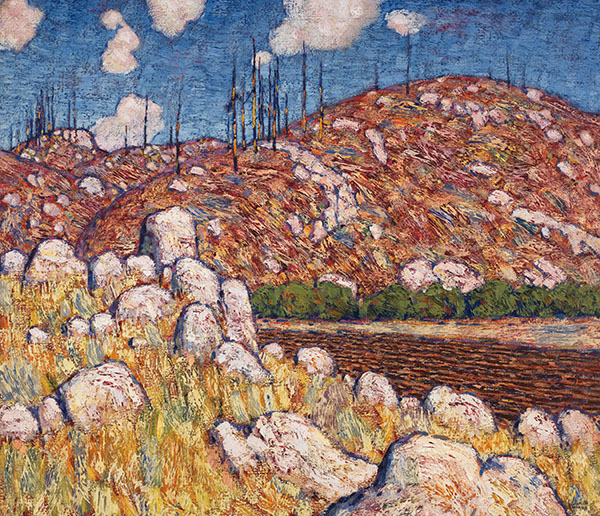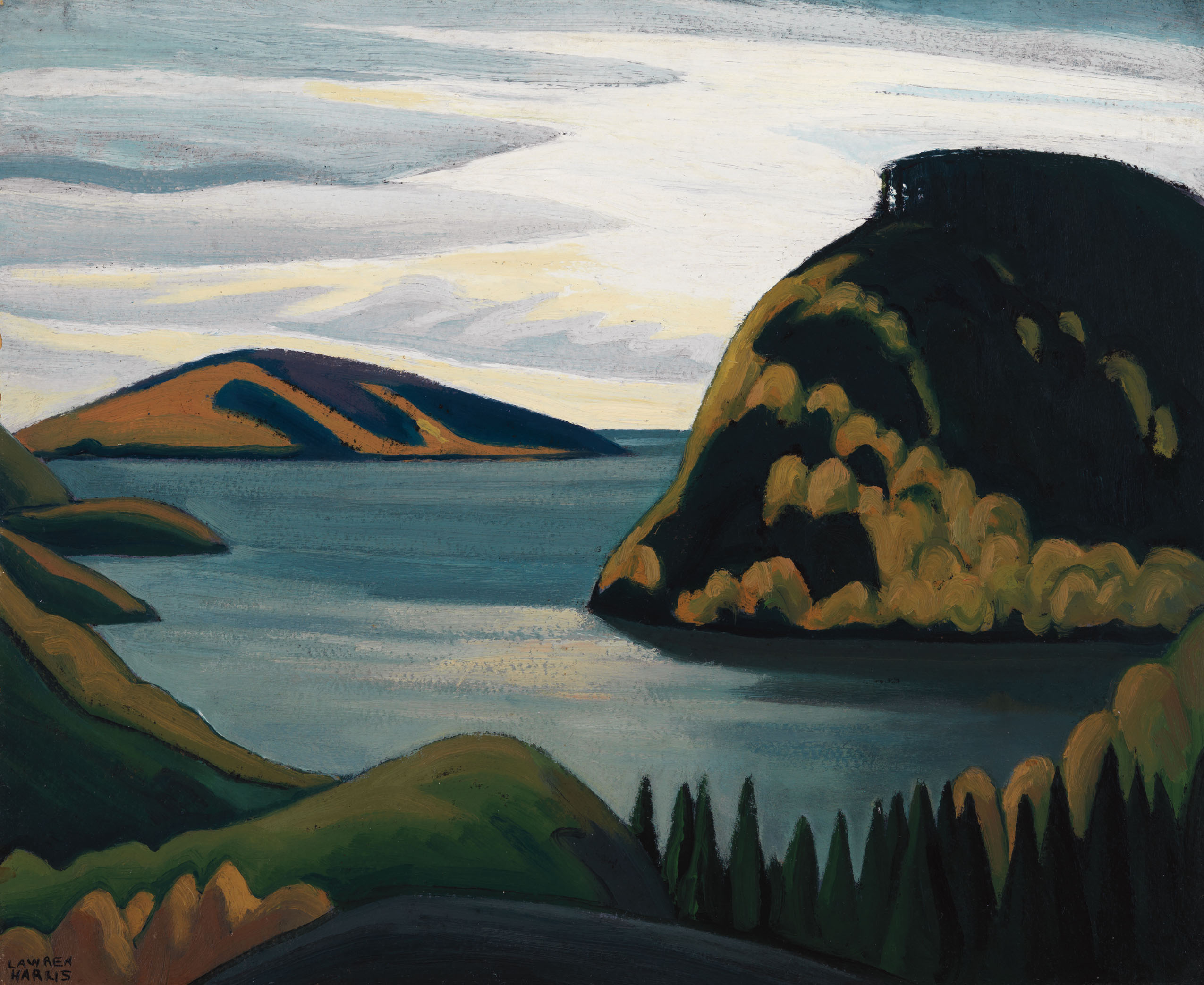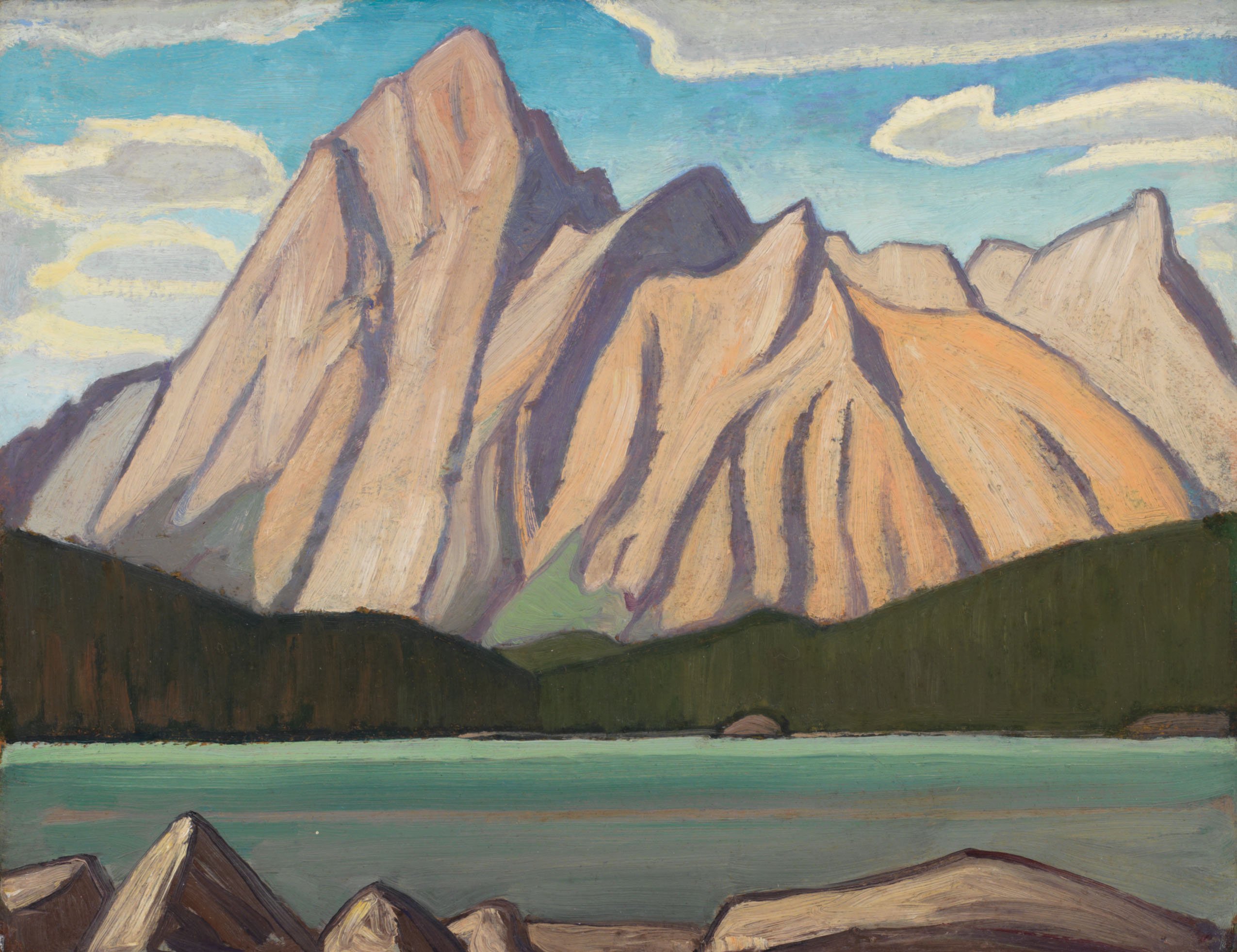People
Is Steve Martin Driving Lawren Harris’s Soaring Auction Prices?
The Group of Seven artist is having a moment.

The Group of Seven artist is having a moment.

Sarah Cascone

Want to get your hands on a painting by Steve Martin‘s favorite artist? It’s going to cost you. Thanks in part to the actor and comedian’s well-documented love of Lawren Harris (1885–1970), the Group of Seven landscape artist is achieving new heights at auction.
Thanks to the success of “The Idea of North: The Paintings of Lawren Harris,” the artist is finally getting his due in the United States, and is getting a second wind in Canada. The exhibition is curated by Martin and co-organized by the Hammer Museum in Los Angeles and the Art Gallery of Ontario. It is currently on view at the Museum of Fine Arts Boston through June 12, and will open in Toronto on July 1.
“It’s been very positive for Harris and for Harris’s market,” Robert Heffel, vice president of Canada’s Heffel Fine Art Auction House, told artnet News in a phone conversation, calling Harris “one of Canada’s most important artists.” The auction house is looking forward to three potentially big Harris sales at its spring sale of fine Canadian art on May 25.
According to the artnet Price Database, Harris’s auction record before the “The Idea of North” exhibition opened was CAD $3.5 million ($3.35 million), set at Heffel on November 26, 2009.

Lawren Harris, Lake Superior, Lake Superior Sketch XXII (circa 1924). Courtesy of Heffel Fine Art Auction House.
Six years later, that record was broken twice on a single night, with Heffel’s sales of Winter Landscape for CAD $3.66 million ($2.75 million) and Mountain and Glacier for CAD $4.6 million ($3.46 million). The lots both far outstripped their pre-sale estimates of CAD $1.2 million–1.6 million ($900,000–1.2 million) and $1 million–1.5 million ($750,000–1.1 million), respectively, and became the second- and third-most expensive paintings by a Canadian artist ever sold at auction.
“We did see more interest in Harris’s works from outside of Canada last fall,” said Heffel.
Those pre-sale predictions align pretty closely with the next Harris painting to make it to the secondary market. Laurentian Landscape (1913–14) is pegged at CAD $1.2 million–1.6 million ($915,000–$1.22 million). Considering the artist’s recent performance at auction, and the painting’s bonafides, it’s not hard to imagine it going for considerably more.
Art historians count this canvas as one of two key works for the Group of Seven. “It’s a very important early example of the beginning of the Canadian school of landscape painting,” said Heffel, noting that the over 100-year-old work “still looks modern and fresh today.”
The current owner bought the landscape from Toronto art dealer G. Blair Laing in 1966 for CAD $8,400 ($6,400). The upcoming sale marks the first time the canvas, which shows a distinct Impressionist influence, has ever been offered at auction.

Lawren Harris, Mount Sampson, Maligne Lake (1924). Courtesy of Heffel Fine Art Auction House.
“It certainly has roots in French Impressionism,” said Heffel. “The Group of Seven was was trying to take that further and make a real Canadian identity.”
The sale also includes two additional Harris paintings, albeit ones that carry more modest expectations. Coldwell, Lake Superior, Lake Superior Sketch XXII (circa 1924) could bring in CAD $450,000–550,000 ($343,000–419,000), while Mount Sampson, Maligne Lake (1924) is expected to hammer down at CAD $250,000–300,000 ($190,000–229,000). Both canvases were created while Harris was travelling with fellow Group of Seven painter AY Jackson to regions that feature prominently in his oeuvre (Lake Superior and the Rocky Mountains).
Heffel described the two pieces as “more classic Group period Lawren Harris works” that more closely resemble the paintings in “The Idea of North.” The lower estimate is in part because they are oil on board paintings, rather than canvas works, which are becoming increasingly rare at auction as they enter museum collections.
“We do see this somewhat as a crossover moment,” Heffel noted. “We’re seeing more and more Americans being interested in other Canadian artists as well, such as Emily Carr and other members of the Group of Seven.”
He added, with hope, “Canadian art is beginning to come into its own abroad.”